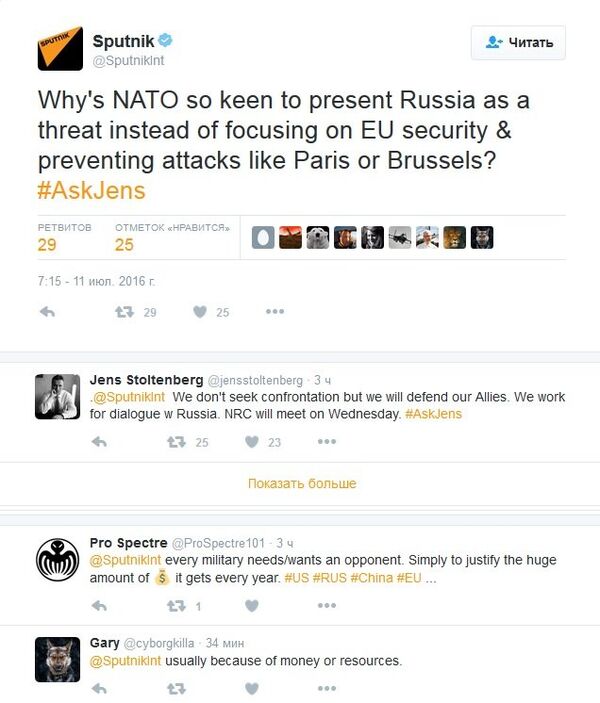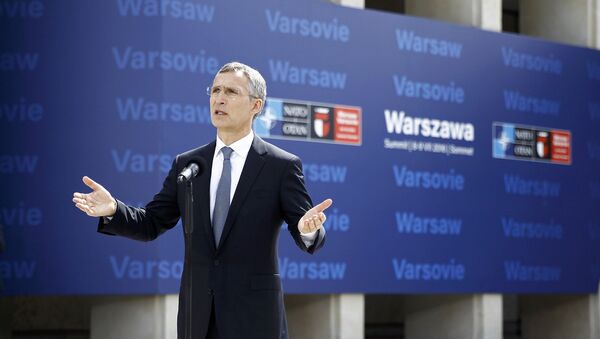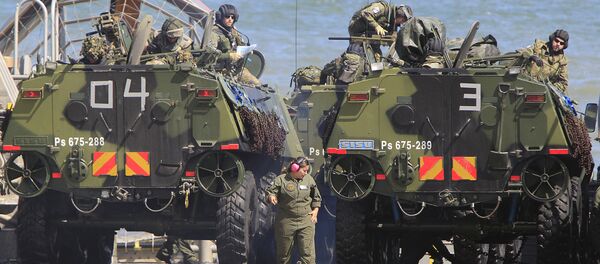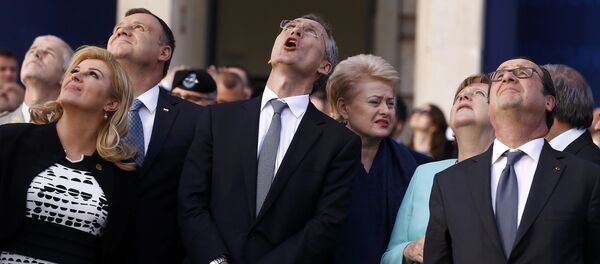On Monday, Sputnik tweeted at NATO Secretary General Jens Stoltenberg, asking him why NATO is "so keen to present Russia as a threat, instead of focusing on European security, and preventing attacks like Paris and Brussels?"
Surprisingly, Stoltenberg responded, insisting that "we [as in NATO] don't seek confrontation, but will defend our Allies. We work for dialogue with Russia."

Still, for one reason or another, Russian observers just don't seem to be fully convinced of the alliance's peaceful intentions.
Commenting on the alliance's Warsaw Summit, which wrapped up over the weekend, Konstantin Kosachev, the head of the Russian Senate's International Affairs Committee, sardonically explained on his Facebook page that "NATO's decision to deploy its four battalions in Poland and the Baltic states is unlikely is to drastically change our relationship" (for the better).
"We are not afraid of soldiers; we fear the politicians who, knowing full well that there is no threat from Russia, continue to deceive millions of people," Kosachev emphasized.
For his part, former Soviet president Mikhail Gorbachev, who presided over the dismantling of the Warsaw Pact and the end of the Cold War confrontation between East and West, described the NATO military buildup as nothing less than preparation for a hot war against Russia. Speaking to Russia's Echo Moskvy radio station, Gorbachev warned that "the rhetoric coming out of Warsaw sounds almost as if the alliance is declaring war against Russia. They speak about defense, but actually they are preparing for an offensive."
pic.twitter.com/Db6qiodJFX. The map if NATO expansionism. I don't see Russia invading anywhere it is the US/NATO expansion is the problem.
— John Finucane (@johnjoechad) 3 декабря 2014 г.
Gorbachev's fears were echoed by military expert Alexander Perendzhiyev, who focused on what he said were NATO's double standards. On the one hand, the analyst noted, the alliance calls Russia a threat on a par with Daesh (ISIL) terrorism. On the other hand, it declares its unwillingness to openly call Russia its enemy.
Commenting on NATO's ineffectiveness in fighting terrorism, Perendzhiyev lambasted the alliance for its focus on pushing troops, missiles, ships and warplanes up to Russia's borders, while the threat of terrorism, which has already killed hundreds of Europeans, goes virtually ignored.
In his tweet, Mr. Stoltenberg indicated that dialogue with Russia would continue, including at the upcoming NATO-Russia Council meeting this Wednesday. In the wake of the alliance's statements and recent actions, which seem to be aimed exclusively at pushing a reluctant Moscow into a new Cold War, it's anyone's guess what the outcome of that meeting might be…



